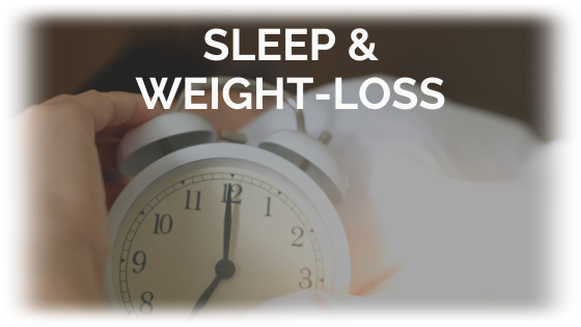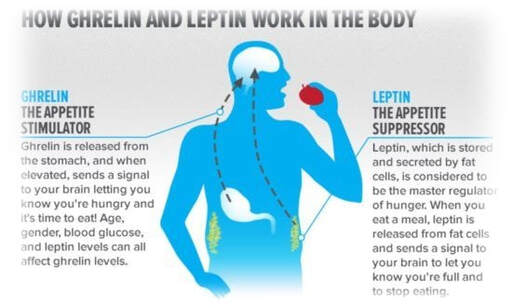Tried Sleeping?If you’ve ever tried or are trying to lose weight, my guess would be that you’ve maybe adjusted your diet or started exercising more often. And that’s great - it’s what you should do. But, I’d also assume you’re probably overlooking other, more fundamental factors that are involved in weight loss. One of them being sleep. And it’s not necessarily your fault. The appeal of a 4-week diet that claims (falsely) to accelerate fat loss is much greater than being told to get consistent high-quality sleep, isn’t it? Plus, you can’t sell sleep. Like I said, paying attention to diet & exercise is a good thing. But, when trying to lose-fat - and more significantly, improve health - no sole variable deserves exclusive attention. Multiple variables require consideration - sleep being a key one. Sleep's vital for the proper maintenance of several metabolic processes that go on our body. Without our sleep being on-point, any changes made regarding diet & exercise are almost futile. Now you might not think it’s entirely necessary to understand the science behind sleep & weight loss, but hear me out. By understanding how sleep is implicated with weight loss you are better able to adapt your behaviour to achieve your goal. Our sleep affects several hormones - "chemical messengers" within the body - which have direct & indirect effects upon our body weight. Here's how: CortisolThe stress hormone. Cortisol is produced as part of the “fight or flight” response. This response takes place when we experience a stressful stimulus or event. Cortisol levels are spiked when our sleep quality is poor or insufficient. It has huge implications on our body weight, but before explaining how, we need to talk a bit about insulin. Whenever we eat (carbs + protein), the food is broken down into glucose (sugar). In response, insulin is produced. Insulin stores the glucose into liver & muscle cells, as glycogen - a form of stored energy for later. Basically, insulin prevents blood glucose levels from reaching dangerous levels. When cortisol is produced, the action of insulin is inhibited. Resultantly, glucose is pumped from the muscle’s & liver back into the bloodstream. This happens to provide the body with energy to react to the supposedly stressful event in our environment. So, now we are left with body cells that are deprived of the energy they want & need. They signal to the brain - “we need food!”. Resultantly, you eat more; in excess of what you need. Unfortunately, our muscle cells and liver only have a limited storage capacity for glucose. Once this capacity has been reached, glucose has to be stored elsewhere - the fat cells. Over time, with continued excess glucose, fat levels increase. To make matters worse it’s a two-way street. With increased cortisol levels our sleep quality & the amount of sleep we get is reduced - further perpetuating any issues. Ghrelin & LeptinThe two hunger hormones. Ghrelin is responsible for signaling of feelings of hunger & leading to storage of calories. Meanwhile, Leptin signals satiety, telling our body we are satisfied and there’s no need to store calories. Under normal circumstances, these hormones operate effectively - we feel hungry when we need food and full after eating. However, when sleep deprived these hormones essentially get out of whack. Ghrelin levels spike, whilst leptin levels drop. This inevitably leads to feelings of increased hunger and an increased propensity to eat - even when the body doesn’t actually require the energy. With increased consumption, body weight and fat increases. Several studies have demonstrated the relationship between reduced sleep, these hormones and weight-gain. Sort Your Sleep OutThese are just a couple of the key hormones that play a key role in sleep. I’m no endocrinologist or a sleep expert, but what I do know is that sleep matters - especially if you're trying to lose weight.
So here's a few simple tips to improve your quality of sleep: Go to bed at a responsible time. Consistently. That means weekday or weekend you're heads hitting the pillow at the same time. Of course, there will be occasional instances where you're up late. Simply do your best to be consistent with your sleep-wake times. Establish a healthy bedtime routine. This means finding a few simple activities that mentally cue and prepare you for sleep. Meditation & reading are two great examples, helping to slow the mind, separating you from the chaos of the day. Limit your exposure to artificial light. Lighting and phone/laptop/tv screens late at night suppress production of another hormone, melatonin. This negatively impacts our sleep quality. For more on this, read my blog on light & health. Ensure you're getting a minimum of 7 hours sleep each night. Ideally 8. Inadequate sleep has dire effects. Moderate reductions for just one week disrupts blood sugar levels so much that you'd be classified as pre-diabetic. Overall, it's key to recognise that diet or exercise alone isn't enough. Each aspect of health has to be given sufficient attention and sleep simply cannot afford to be neglected, even slightly. Give your sleep the respect & attention it deserves. |
Author
Christian Lawal Personal Training.
Personal training in Tunbridge Wells, Tonbridge & Sevenoaks. Archives
January 2024
|



